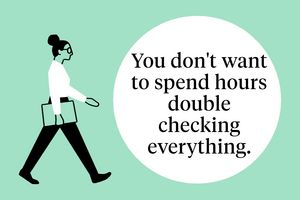Careers Oct 1, 2020
There Are 168 Hours in the Week. Are You Spending Them on What Matters?
A former CEO on how to budget time for what you value most.

Lisa Röper
Editor’s note: This is part of a series of articles based on Kellogg Executive Education webinars focused on COVID-19 and crisis management.
Trying to achieve more balance in your life? Harry Kraemer has an exercise for you.
Make a grid with six rows for each of the major aspects of your life, which Kramer defines for everyone as career, family, health, spirituality, fun, and volunteering. Then decide how much of your time you would ideally like to be devoting to each of these activities. Next, figure out how much you actually are devoting. Finally, calculate the difference.
“Only attempt this exercise if you’re in a really good mood,” cautions Kraemer, the former CEO of Baxter International who is now a clinical professor of leadership at Kellogg. The reason: very few people match what they want to be doing with what they actually are doing.
“Every one of us has 168 hours” in a week, Kraemer says. “Do you know where you’re spending your time? And are you spending it where you believe it matters most?”
This is the topic of Kraemer’s new book, Your 168: Finding Purpose and Satisfaction in a Values-Based Life. He discussed this exercise as well as other thoughts on living a values-based life in a recent webinar from Kellogg Executive Education.
The way you spend your time, Kraemer says, should match up with your personal values. So how do you determine what those values are?
The first step is to engage in an activity that Kraemer regularly espouses for leaders: self-reflection. “Turn off the noise. Think through: what are my values, what’s my purpose, what really matters?” And do this while keeping in mind that a value is not simply a preference; it is something that you are not willing to compromise or negotiate.
The pandemic, despite all the horrors it has brought, has provided some people with more time for self-reflection. Kraemer advises them to use this as an opportunity to think through how the changes in their lives may be making it easier to align with their values. For instance, someone who used to travel a lot for business may ask themselves, “Do I need to fly to San Francisco for a three-hour meeting? Would it make more sense to do a phone call and spend more time with my children? Before COVID, was I confusing activity with productivity?”
Once you’ve engaged in self-reflection to identify the values you hold dear, Kraemer says, then you need to find a solid sounding board who will tell you whether you are living those values. This could be a family member, close colleague, or religious leader, for example.
“Find people whose values you appreciate, whom you admire, who can give you an honest appraisal of whether you’re on track or not,” he says. And if they say you’re not, you need to engage in self-reflection to figure out how to get there.
Soliciting feedback is a key leadership skill in any context, Kraemer explains. Yet, as you rise through the ranks at an organization, it can often get more difficult to get anything other than sugar-coated counsel.
One way to ensure you’re getting straight talk is to make sure that you’re interacting with everyone in the company. This means going well beyond your own team.
For example, Kraemer says that when he was leading Baxter, he’d show up unannounced for the interns’ softball games. Now that he sits on several corporate boards, he makes a point of arriving early for meetings so that he can interact with more than just his fellow board members. He’ll go to the cafeteria and strike up conversations with employees of all levels. Showing people that you will treat everyone equally and as individuals means you’ll learn much more about what’s happening in your company.
“You find out a tremendous amount of what’s going on by being able to cut through the hierarchy,” he says. Plus, “it keeps you grounded.”
Next, you need to show people that you are prepared to act on feedback, even if it runs counter to what you had believed. For example, say you come to a meeting with a project idea but one of your team members suggests trying something else. Thank them for the feedback, Kraemer says, probe for more information with good questions, and then, assuming their idea is valid, assign them to lead up the project in the way they suggested.
“You have to find ways to demonstrate how much you really want the feedback,” Kraemer says. Once others see this, they’ll start offering you their true opinions, too.
You can watch the full webinar here and see previous articles from this series here.



